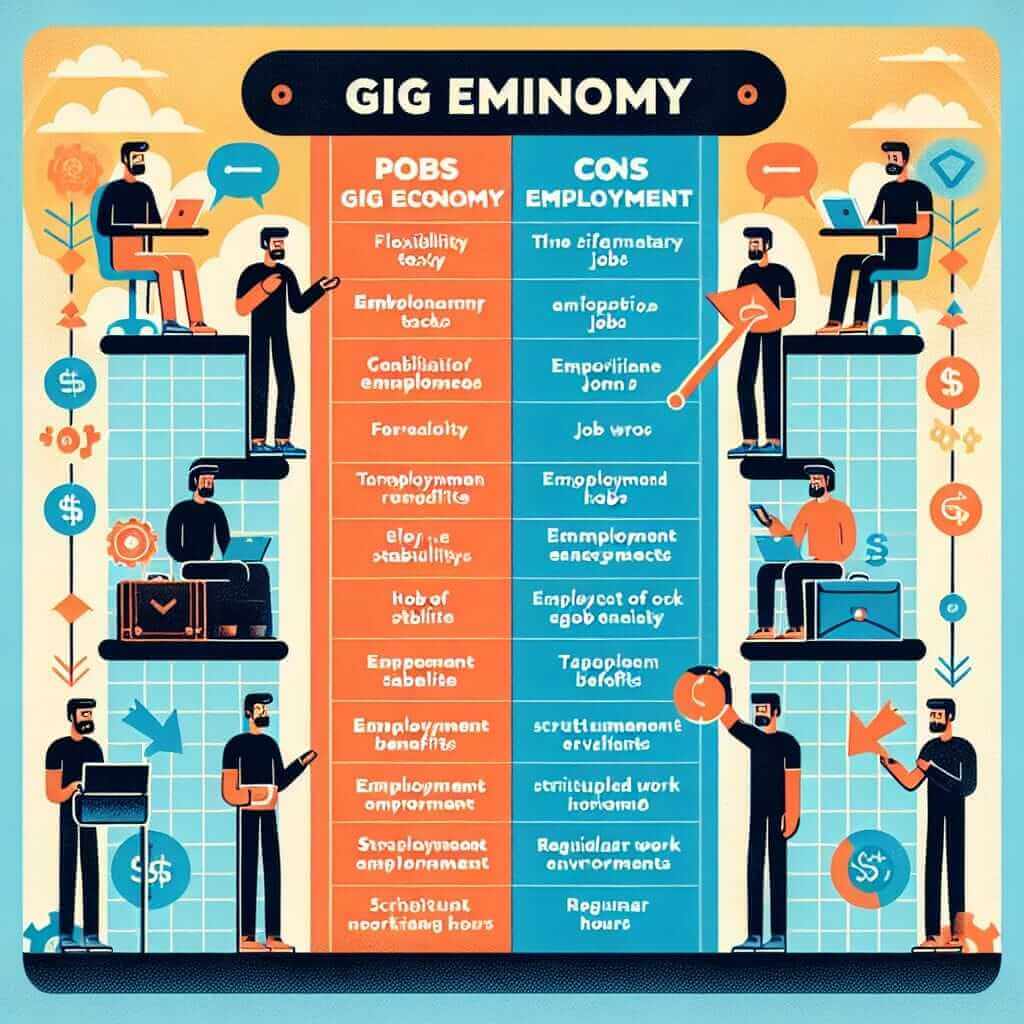The rise of the gig economy is undeniably transforming the employment landscape. This article delves into the multifaceted impact of this new work paradigm on traditional employment, offering insights valuable for IELTS Writing Task 2 preparation. We’ll analyze potential essay questions, provide a model answer, and highlight key vocabulary and writing strategies.
IELTS Writing Task 2 Sample Questions
The gig economy frequently surfaces in IELTS Writing Task 2, prompting test-takers to analyze its implications. Here are some potential essay questions:
- To what extent do you agree or disagree that the gig economy offers more benefits than drawbacks for workers?
- Discuss the advantages and disadvantages of both the gig economy and traditional employment.
- The gig economy is replacing traditional employment. What are the positive and negative impacts of this trend?
Model Essay: The Gig Economy’s Impact on Traditional Employment
Let’s examine a model essay responding to the third question:
The gig economy, characterized by short-term contracts and freelance work, is progressively displacing conventional employment models. While this shift presents both opportunities and challenges, it is crucial to acknowledge its profound effects on the workforce and society as a whole.
On the positive side, the gig economy offers greater flexibility and autonomy to workers. Individuals can choose their own hours, work from anywhere, and have more control over the types of projects they undertake. This newfound independence can be particularly appealing to those seeking work-life balance or pursuing creative passions. Moreover, the gig economy can provide income-generating opportunities for individuals who may face barriers to traditional employment, such as stay-at-home parents or people with disabilities.

However, the gig economy also presents significant downsides. Unlike traditional jobs with fixed salaries and benefits, gig work often lacks job security, stable income, and essential employee protections such as health insurance and retirement plans. This uncertainty can lead to financial instability and stress for gig workers. Furthermore, the absence of a structured work environment can result in social isolation and a lack of career advancement opportunities.
In conclusion, the gig economy’s impact on traditional employment is undeniable. While it offers flexibility and independence, it also creates precarious working conditions and erodes the social safety net traditionally provided by employers. As the gig economy expands, policymakers and individuals alike must adapt to navigate its complexities and ensure fair labor practices for all.
(Word count: 256 words)
Writing Tips and Vocabulary
Tips:
- Structure: Use a clear structure (introduction, body paragraphs, conclusion) with strong topic sentences.
- Balance: Discuss both the advantages and disadvantages of the gig economy.
- Examples: Support your points with relevant examples and evidence.
- Vocabulary: Use a range of vocabulary related to employment and economics.
Vocabulary:
- Gig economy (noun): /ɡɪɡ ɪˈkɒnəmi/ – A labor market characterized by short-term contracts or freelance work as opposed to permanent jobs.
- Traditional employment (noun): /trəˈdɪʃənəl ɪmˈplɔɪmənt/ – Regular jobs with set hours, salaries, and benefits offered by an employer.
- Autonomy (noun): /ɔːˈtɒnəmi/ – The freedom to make your own decisions and act independently.
- Precarious (adjective): /prɪˈkeəriəs/ – Uncertain, insecure, or dependent on circumstances that are likely to change.
- Erosion (noun): /ɪˈrəʊʒən/ – The gradual destruction or weakening of something.
- Social safety net (noun): /ˈsəʊʃəl ˈseɪfti nɛt/ – Government programs that provide financial or other assistance to individuals or families in need.
- Freelance (adjective/noun): /ˈfriːlɑːns/ – Working for different companies or people on particular assignments rather than being employed by one organization.
- Work-life balance (noun): /wɜːrk laɪf ˈbæləns/ – The ability to give a good amount of time to both work and personal life.
- Job security (noun): /dʒɒb sɪˈkjʊərəti/ – The state of having a job that is secure and from which one is unlikely to be dismissed.
- Income-generating (adjective): /ˈɪnkʌm ˈdʒɛnəreɪtɪŋ/ – Able to produce income or revenue.
Conclusion
Mastering the vocabulary and concepts surrounding the gig economy is crucial for success in IELTS Writing Task 2. By analyzing model essays, practicing writing, and expanding your vocabulary, you can confidently tackle this complex topic in your IELTS exam. Remember to explore related subtopics, such as the impact of technology on employment and the future of work, to enhance your understanding and writing skills.